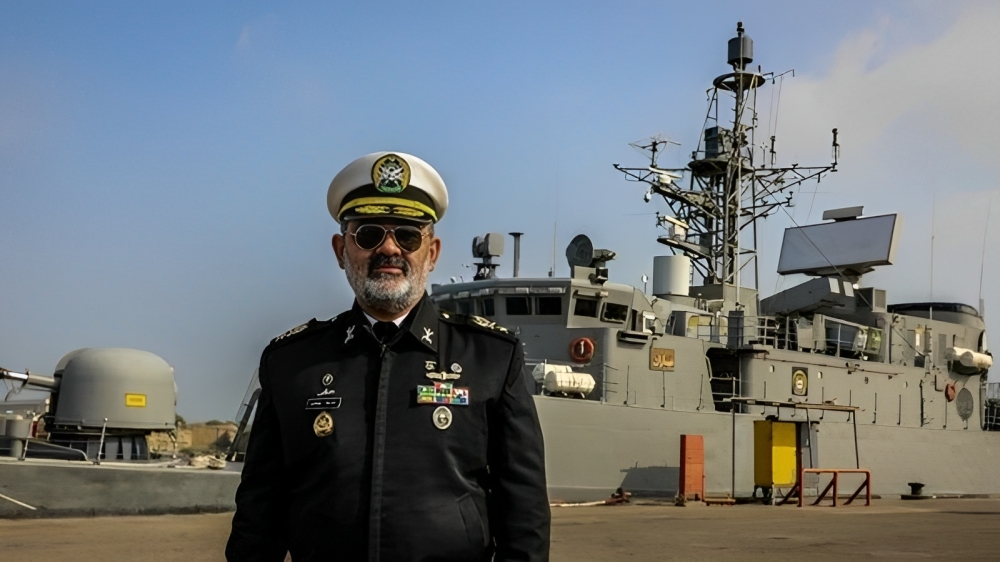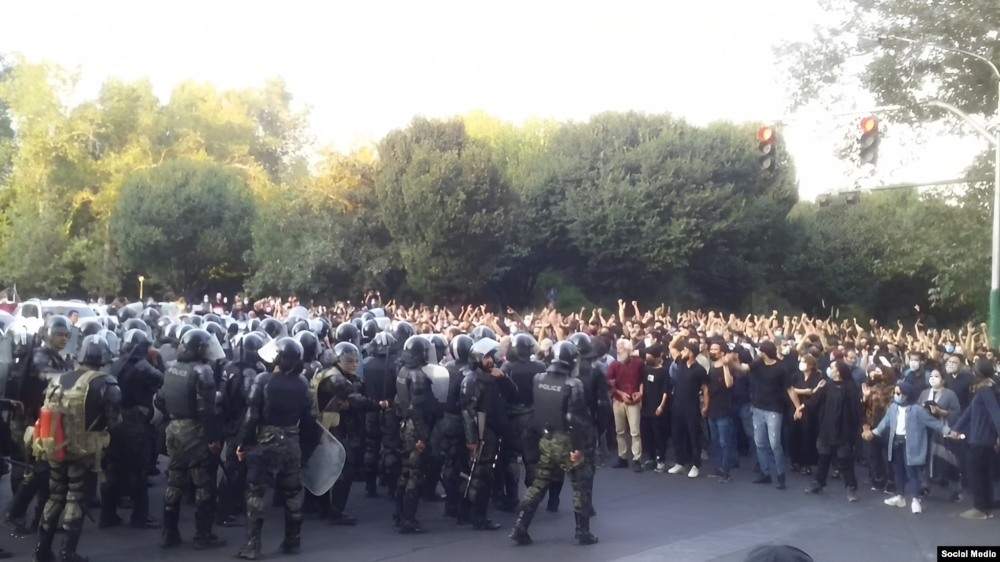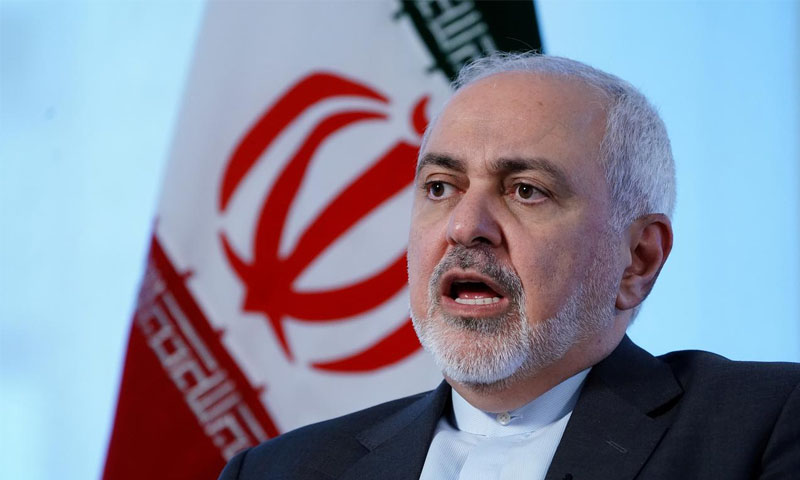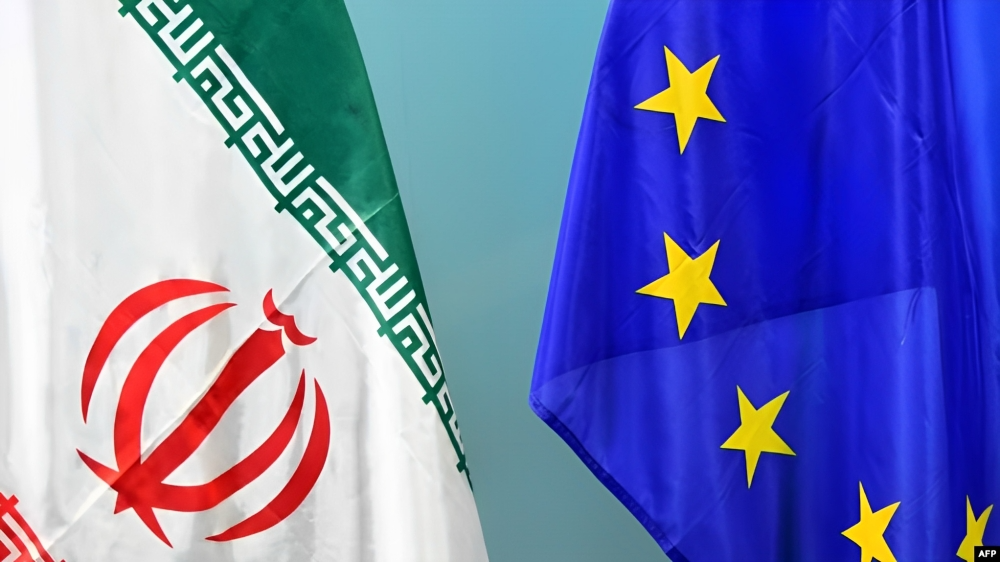
Economic Development: Oil and Natural Gas Are Iran’s Winning Card
The editorial of Eskenas explains that Iran’s development plans have been unsuccessful because of the politicization of the economy in the country, while oil and natural gas can be Iran’s winning card in economic development.
The big problem facing Iran’s economy is that it is not separated from politics because it has always been at the service of the establishment, giving priority to provide for the ideological interests of the ruling elites over national economic expediency. Since Iranian politicians keep changing their minds, no single pattern is followed in making plans which is why the resources allocated for implementing a plan are then used for different purposes when a new political situation arises.
For instance, development plans, which turn into legislation after ratification in the Parliament, are sometimes set aside when unexpected political issues emerge because a part of the allocated resources are redirected toward those unpredicted situations.
So, one of the reasons why Iran’s economic growth was -1% instead of 8%, apart from management shortcomings and the lack of a strategic approach, was because of disruptions in allocating resources which were directed toward political — and not economic — purposes. Or else why should the rate of fixed investment be negative at the end of the Sixth Development Plan?
In the Sixth Development Plan, there was a budget deficit each year which resulted in increased government borrowing, increased liquidity and chronic uncontrollable inflation rates.
People are really in a dire situation, unable to provide for their basic needs, and many more people are now living below the poverty line. Given the existence of a corrupt, rent-seeking economy, the process of development is challenged because rent-seeking and corruption are not compatible with development.
Corruption contradicts the idea and process of development. To achieve development, pragmatism must replace ideological dogma which leads to corruption.
Iran ranks seventh in the world with regard to human resources and underground wealth. If oil and natural gas are properly utilized, these resources will be winning cards for the country’s economic development. But Iran’s economy does not follow the basic rules and regulations of the science of economy.
The science of economy and its requirements have been the launching pad of the world’s newly emerging economies, helping them to move toward economic prosperity and development. Iranian politicians lack such a view toward development.
Poor Management
The editorial of Arman Emrooz urges that people’s rightful demands must be recognized by the Iranian government.
If the demands of different social groups are genuine, then no one can stop people from asking for their rights. If peaceful and legal forms of expression are employed regarding the non-fulfillment of these demands, people will find a different way to express their discontent as their lives are deeply impacted.
A negative response to people’s rightful demands will not only not resolve the issue, but will make the situation more complicated. In the meantime, those who because of poor management and lack of any plans cannot respond properly to people’s demands try to close their eyes to the question instead of resolving it.
Dialogue can settle many problems, differences and misunderstandings. But it can be useful when both sides not only put emphasis on their principles but show flexibility.
The ruling party in Iran is currently showing no flexibility, holding that whatever it says is right and whatever the other side says is wrong. Such a viewpoint will not resolve the issue and will lead to a dead-end.
On the other hand, Iranian dissidents abroad take advantage of the gap which has been created in the country due to the absence or weakness of political parties and popular formations and say that they are the ones pursuing people’s demands which is why a number of people follow opposition groups abroad.
Obviously, if political parties and popular formations functioned properly and were not undermined, people inside the country would not gravitate toward opposition groups overseas.
Circulation of Blood in JCPOA’s Veins
The editorial of Arman Melli maintains that the recent news about the nuclear deal indicates new hopes for reviving it.
Recently, there was news of resolving another issue in Iran’s nuclear case with the IAEA. Based on recent news, two significant steps have been taken by Iran and the IAEA: one is closing the case called Abadeh which was one of the three remaining issues between Iran and the IAEA and the other was the case of discovering residue of over 80% enriched uranium.
Settling these two issues shows there is still hope for reviving the nuclear deal (JCPOA). On the other hand, the international and particularly regional atmosphere has changed and Iran too has made changes to its approach toward international developments.
According to Resolution 2231, the IAEA must report to the UN Security Council about Iran’s nuclear issue, and if Iran cannot satisfy IAEA inspectors, then a resolution will be issued against Iran and Iran’s case might be referred to the Security Council and the snapback mechanism might be implemented against Iran. So, Tehran has tried to cooperate with the IAEA in this regard.
The visit of Oman’s Sultan Haitham bin Tariq al-Said to Iran also indicates that there might be more developments ahead, although Oman’s sultan is after renewing diplomatic ties between Iran and Egypt — as indicated by his trip to Egypt before going to Iran. Furthermore, Iran’s blocked money in South Korea is about to be released, though this money is not going to be directly put in Iran’s possession. Probably, in the near future, Iran’s dollars in Iraq will also be released under the same mechanism.
These parallel developments are positive signs that both sides are heading toward reviving the JCPOA and eventually lifting the sanctions. It seems that the Americans have no problem with this process because they do not want to get engaged in the region. The Americans are focused on containing China and Russia so they are not after opening a third front that would reduce their focus on China and Russia.
Iran too seems to be pursuing improvement of its relations with its neighboring countries to resolve its economic problems by reviving the JCPOA.
Spiraling Descent of the Middle Class
The editorial of Etemad underscores that the collapse of the middle class is a serious threat against the Iranian establishment.
Studies divide social classes in Iran based on economic indicators like monthly average incomes into three classes of upper, middle and lower classes. Based on the data of Iran’s Welfare Website, last year 93% of Iranian households received subsidies, of which 35% were classified as poor, 57% as the middle class and 8% as wealthy. Despite the significant number of poor in comparison with the middle and wealthy classes, the issue here is the collapse of the middle class.
The middle class consists of people from different professions. The majority of the working population is classified in this class with a life closer to the upper class. According to the abovementioned statistics, there was a relative balance in Iran, with the population mostly consisting of the middle class. But currently, due to economic pressures and with the 70% inflation rate, the middle class is rapidly spiraling down toward poverty.
The collapse of the middle class which forms the majority of the country must be considered as an alarming sign for any country and now Iran is facing this huge problem. The middle class creates economic and social balance in society. When the middle class collapses, there is a vacuum which will cause significant social and cultural harm.
Unproductive jobs, the drop in public health, the lack of motivation for education, the increase in the crime rate, the mitigation of public trust in the government, the decrease in people’s support for the government are some of the fallouts of the collapse of the middle class.
Social problems always increase because of economic problems. And it must be acknowledged that these days with the collapse of the middle class, social problems in Iran are significantly on the rise.
Fighting poverty and increasing social and economic welfare have been stipulated as the most important objectives of the government after the Iranian revolution. Since the survival of any political establishment depends on people’s contentment, the deepening of poverty and the collapse of the middle class are considered as serious threats against the survival of the country’s political system.

Iran after Forming Naval Alliance With Saudi Arabia, the UAE

Iran says it will form a naval alliance with regional countries including Saudi Arabia and the UAE.
Admiral Shahram Irani, commander of the Iranian army’s navy, has stated that the naval alliance of Iran with regional countries, including Saudi Arabia, the UAE, Qatar, Bahrain and Iraq, will be soon formed.
Currently, the US Fifth Fleet located in Bahrain, and a coalition of countries including France, Britain and the United States ensure maritime security in the Gulf region. The US presence in the Gulf goes back to after the Tanker War during the eight-year war between Iran and Iraq.
The naval coalition of countries for providing maritime security in the Sea of Oman and the Gulf was formed in the years after the intensification of sporadic attacks against foreign ships. This naval coalition includes Australia, Bahrain, Saudi Arabia, the UAE and Albania.
The Strait of Hormuz is located in the waters of Iran and Oman but the name of this country is not included in the list of countries which, according to the commander of the Iranian army’s navy, are going to form a naval alliance with Iran. The IRGC is in charge of controlling the country’s waters in the Gulf and the Strait of Hormuz, and the Iranian army’s naval forces are present in the Caspian Sea and the Sea of Oman.
The UAE recently announced that after conducting security assessments, it has pulled out of the naval US-led security coalition in the Middle East.
In recent years, the UAE’s political relations have been cold toward Iran, but in recent months, after an improvement in relations with Tehran, the diplomatic relationship between the two countries has been upgraded to the level of ambassador.
Saudi Arabia too which had severed its political and economic relations with Iran for seven years recently restored diplomatic relations with Tehran.
Death Anniversary of Iranian Republic Founder: People Dance in Streets, Khamenei Calls Protesters “Thugs”

34 years after the death of Ruhollah Khomeini, the founder of the Iranian republic, people showed their opposition to the revolutionary establishment by dancing and singing in the streets while Supreme Leader Ali Khamenei lashed out at protesters in his annual speech at Khomeini’s tomb.
Khamenei railed against the nationwide protests of the Woman, Life, Freedom movement, calling those who participated in them “thugs” and “foot soldiers of the enemy, including a few spiteful individuals, a large number of ignorant and sentimental individuals and a group of thugs and hooligans.”
He stated that the protests “were plotted in the think tanks of Western countries.” Khamenei also maintained that Western security organizations provided financial and media support as well as weapons for protesters, without offering any evidence in this regard.
Meanwhile, video clips published on social media showed people, including women without hijab, dancing and singing in the streets of different Iranian cities.
Recently, the Parliament received a bill according to which “dancing contradicts public chastity” and “noise pollution caused by performing or broadcasting unauthorized, trashy music” is a crime.
In his speech, Khamenei also lauded those who suppressed the protests, including the student Basij and other “committed individuals on the streets and universities who did a great job.”
More than 500 protesters, including 70 children, were killed and tens of thousands arrested during the demonstrations triggered by the killing of 22-year-old Mahsa Amini in September 2022. Seven individuals were hanged for participating in the protests. More than 100 journalists were taken into custody, tried and imprisoned in this regard.
Mohammad Javad Zarif Slams Iranian Leadership’s “Wishful Thinking” in Foreign Policy

Former Iranian Foreign Minister Mohammad Javad Zarif, on his Instagram page, defended “compromising” in foreign policy, called for making correct and intelligent choices, and slammed “wishful thinking” in Iran’s foreign policy.
Zarif wrote, “Having hope gives direction to life, but paying attention to capacities makes possible moving toward ideals. Today, we need to understand and make intelligent choices.”
Zarif added that after “75 years of planning for development, national resources have been squandered and no development has been achieved, because most plans are expressions of the wishful thinking of the country’s leaders rather than outlining a path to overcome the country’s backwardness in accordance with existing possibilities and opportunities.”
He went on to write that some Iranian politicians have tried to “curb the damage caused by the wishful thinking” of Iranian leaders in the past, but have been accused of being “compromisers” and even “traitors.”
Although the former foreign minister did not mention Ruhollah Khomeini and Ali Khamenei as two of these leaders, his remarks drew strong criticism from some figures and media outlets close to the Iranian government.
Tasnim News Agency, affiliated with the IRGC, slammed Zarif, writing that he sees his own ambitions for the nuclear deal with the United States have come to naught, he tries to attribute his failure to the ideals of the country’s political system, without mentioning the “brilliant achievements” of the country and Iran’s supreme leader.
Iranian Supreme Leader Ali Khamenei in his recent meeting with foreign ministry officials and Iran’s ambassadors emphasized on “three words of dignity, wisdom and expediency” in foreign policy, saying that “dignity means negating the diplomacy of begging both in words and content.”
In one of his recent speeches, Khamenei claimed that what he had earlier called as “heroic flexibility” was misunderstood, and now there must be “flexibility” in foreign policy.
64% Decrease in Iran’s Exports to the EU in the Past 14 Years

Iranian media outlets have quoted the Custom Office’s statistics saying that Iran’s non-oil exports to the EU have dropped by 64% in the past 14 years.
The statistics show that Iran’s non-oil exports to the member countries of the EU declined from $2 billion in 2009 and 2010 to $725 million in 2022.
It has been said that Iran’s exports to the EU started to decline after the UK exited the EU and the number of member countries of the EU decreased, and the United States pulled out of the nuclear deal and the sanctions against Iran were intensified.
In the meantime, after the Iranian government refused to pass the FATF bills regarding money laundering and reforming the financial system in the country, Iran was added to the FATF blacklist.
The FATF is an international group which aims to eliminate money laundering at the global level. Only Iran and North Korea are on the FATF’s blacklist.
Meanwhile, the Iranian Chamber of Commerce’s statistics show a 57% rise in Iran’s imports last month compared to the same period last year.
According to the latest report of Tehran’s Chamber of Commerce, in the past 9 months, Iran had imported $9 billion worth of goods, mostly from China, the UAE, Turkey, Germany and Russia.
Last month, Iran’s non-oil exports reached $3.8 billion showing 6.1% growth. A large part of what is called non-oil exports by Iranian institutions are actually crude oil products. Iran’s imported goods include corn, smartphones, soybeans, auto parts and rice. For several years in a row, Iran’s imports have exceeded its non-oil exports.
